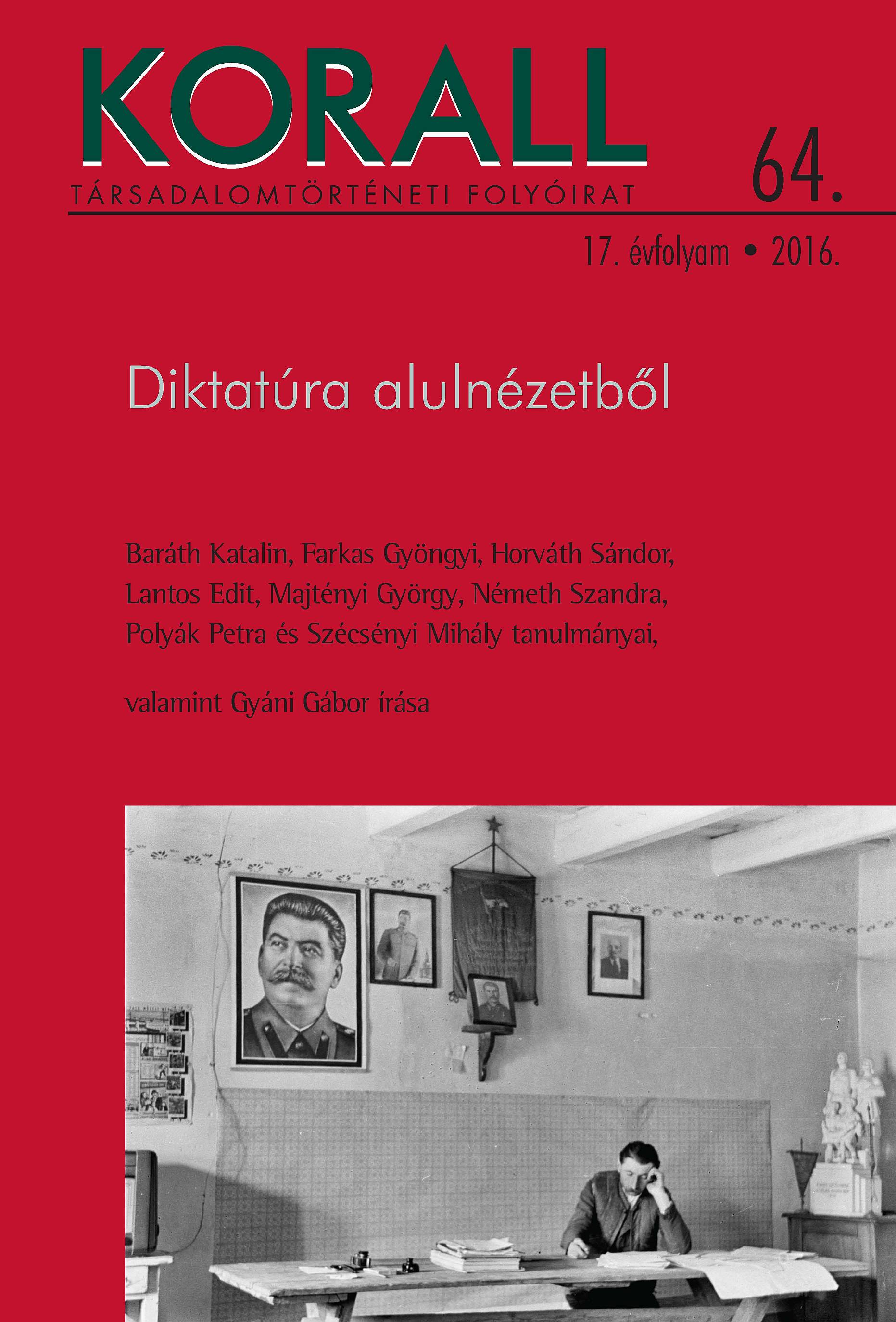Az álruhás király: a (fel)jelentés mint az érdekérvényesítés eszköze a Kádár-kor hajnalán
A King in Disguise: Reporting as a Means of Asserting Self-Interests at the Dawn of the Kádár Era
Author(s): Sándor HorváthSubject(s): History, Social history, Post-War period (1950 - 1989)
Published by: KORALL Társadalomtörténeti Egyesület
Keywords: history;communism;Kádár era; agent network;
Summary/Abstract: How did the socialist regime and the individual mutually shape one another in everyday life? The study’s protagonist, Agent G, produced state security reports in a Nógrád County miners’ community throughout the entire Kádár era. Acting like a “king in disguise” he used his reports to administer justice in the everyday conflicts of his community, while as an official of the local football team playing Second Tier in the National Championship he also had the opportunity to travel widely and frequently around the mining district. Earlier in his life, he had been tried as a war criminal and then participated in the rebel village’s Workers’ Council in 1956. Despite the fact that he was a mediocre student leaving school at 14 to work either as physical labourer or junior office worker at the railway and in the coal industry, national politics recurrently intersected Agent G’s life and career. The study reconstructs Agent G’s strategy to use his reporting activity to advance his personal ambition, his way to adapt to the expectations of the agent network, and the changes in his perceptions about the world around him as reflected in his reports. Through Agent G’s reports written at the end of the 1950s, Horváth traces the identity transformation of an individual who had previously not been considered a supporter of the regimes he lived in. How did Hungarian society change after 1956 and what made people politically ‘passive’, at least seemingly, by the beginning of the 1960s? Agent G’s reports, mostly based on exchanges overheard in the mine, provide a glimpse into the process that fundamentally changed the language of and attitudes towards politics in the underbelly of Hungarian society. Compared to the transformation of his fellow villagers, the agent’s collaboration with local authorities was hardly anomalous. Besides the agent’s reports, the in-depth study also builds on relevant state security documents and People’s Court archives, as well as interviews with Agent G’s former colleagues, relatives and widow.
Journal: Korall - Társadalomtörténeti folyóirat
- Issue Year: 2016
- Issue No: 64
- Page Range: 69-89
- Page Count: 21
- Language: Hungarian

